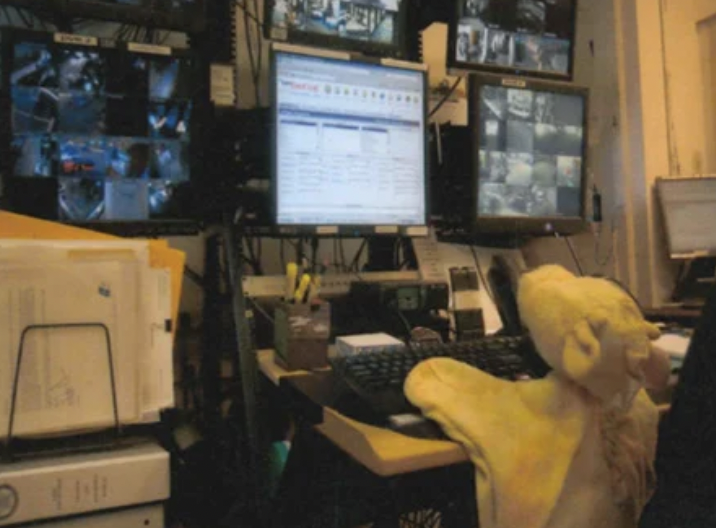Do Things that Don’t Scale: a Lesson from Ritz-Carlton
Last week, I shared some of the automation tools we use to run our properties more efficiently—from guest messaging systems to dynamic pricing and smart locks. These tools are powerful. They buy back our time, reduce human error, and help us scale with consistency.
But today, I want to talk about the opposite of that.
As I build Unique Stays, my small but mighty startup, I often find myself reading about other startups that became legendary companies. I’m talking about early stories—the fragile beginnings, sleepless nights, hand-built prototypes, and the moments no one talks about until success makes them glow in hindsight.
One of the articles I return to again and again is Paul Graham’s Do Things That Don’t Scale. It’s not about hospitality. But it might as well be.
When I reflect on the best experiences I’ve ever had—in hospitality or in life—they were almost always deeply personal. Moments when someone did something beyond what was expected. Everything I still remember months or years later began with the same principle: doing things that don’t scale.
When Airbnb was just an idea, its founders went door to door in New York, photographing listings themselves and helping hosts write better descriptions. That’s not very scalable, one might think.
When Stripe launched, the Collison brothers didn’t just send out a signup link—they often wrote and installed the code themselves for early users. Paul Graham reminds us that startups do not take off on their own. Founders make them take off.
And so do hosts.
The mistake many first-time entrepreneurs make—whether they’re building software or guest stays—is assuming that if something is good, people will come. That the mousetrap sells itself. That if you design something beautiful enough, the world will find it and fall in love.
But beauty alone doesn’t make things grow. Intention does. Obsession does. Relentless, unscalable effort does.
In hospitality, that effort looks different than it does in tech.
It’s writing a handwritten thank-you card for every guest who arrives. It’s spending an hour designing the perfect Spotify playlist for a couple’s anniversary weekend—because you know it will make their stay unforgettable.
There’s a famous story from the hospitality world that some of you may have already heard.
🦒 Joshie the Giraffe and the Hotel That Cared
In 2012, a family checked out of the Ritz-Carlton in Amelia Island, Florida, only to realize they had accidentally left behind something important: their young son’s beloved stuffed giraffe, Joshie.
To calm his distressed child, the father, Chris Hurn, told a gentle white lie—that Joshie had decided to stay a few extra days to enjoy a little vacation.
Then he called the hotel.
“I came clean to the staff about the story I told my son,” Hurn later wrote, “and asked if they would mind taking a picture of Joshie on a lounge chair by the pool to substantiate my fabricated story.”
The Loss Prevention Team happily joined in the ruse. “I hung up the phone very relieved.”
What happened next became a legend in hospitality.
A few days later, the family received a package. Inside was Joshie—safe and sound—along with some Ritz-Carlton branded goodies: a frisbee, a football, and more.
But most surprising of all?
The staff had also included a photo album, meticulously documenting Joshie’s “extended stay” at the resort. There were photos of him lounging by the pool, getting a massage, working in hotel security, even wearing a tiny staff badge.
Joshie sunbathes by the pool.
Joshie gets a relaxing massage.
Joshie takes on a new role in hotel security.
This quirky, thoughtful gesture turned what could have been a small family crisis into something magical.
By embracing one child’s imagination—and one dad’s improvised story—the Ritz team delivered something no automation or SOP ever could: delight, surprise, and a memory that will last a lifetime.
Do you think that if the Ritz-Carlton team had simply mailed the toy back, this story would have made such an impact? Would it have been picked up by major media outlets?
I don’t think so.
Why did major media outlets pick up this story?
Because the team went one step further. They didn’t just accommodate—they delighted and surprised. They offered a personalized gesture that doesn’t scale.
Or does it?
The act of creating such a tailored experience for a stuffed animal doesn’t scale in itself—but I’d bet that this family’s favorite hotel became the Ritz-Carlton from that moment on. I’d bet they told this story to friends and family. And eventually, that story reached headlines. People are still sharing this story ten years later, just like I am with you now.
It scaled.
So doing things that don’t scale can, paradoxically, lead to scale.
The very things that feel small, manual, and slow are what plant the seeds of greatness.
Paul Graham describes a startup’s growth as a vector—measured by how fast and in what direction you’re growing. And in the early days, that growth often starts with an unscalable path. The little fire you keep alive with your own breath before it can catch on its own.
I think about that a lot.
I think about how we obsess over experiences that delight, and how strange that word sounds in the age of automation. Delight isn’t scalable. Neither is trust. Or a sense of belonging. But these are the currencies of meaningful hospitality.
Delight doesn’t scale, but it compounds.
And that’s true for us too. Every guest you amaze becomes your advocate. Every story you help someone live becomes the beginning of your story too. One booking turns into a return guest. A return guest tells a friend. A friend posts a reel. And suddenly, your tiny stay that no one knew about has a waitlist.
In the beginning, nothing feels big. That’s normal. Airbnb, Paul reminds us, was so fragile at first that thirty days of talking to hosts in person was one of the big reasons they survived. You don’t need a hundred listings. You don’t need a viral TikTok or a massive launch. You just need ten people who care. Ten people who feel something in your space. And you need to care so deeply that they can’t help but tell others.
This is how you build something that lasts. Not with scale. With soul.
The early days of any venture—whether it’s a tech startup or a hospitality brand—aren’t about systems. They’re about sweat. You answer every message yourself. You remember the guest’s dog’s name. You fix the Wi-Fi at midnight because the guest works remotely and needs it for a 6 a.m. meeting. You care more than anyone thinks is reasonable.
And one day, when the fire burns hot enough, you’ll look back and realize: these unscalable things weren’t a stepping stone to success. They were success. They shaped the DNA of your brand. They taught you who your guests really are, what they actually need, and how you want to show up in the world—not just as a host, but as a builder.
Doing things that don’t scale will make you fall in love with your business. It brings you closer to your guests, your mission, your story.
You’re not hiding behind systems. You are the experience. For a little while. And it’s holy work.



